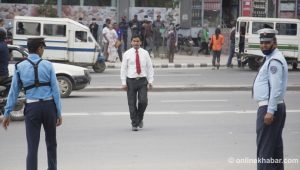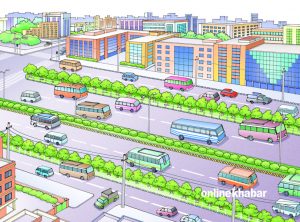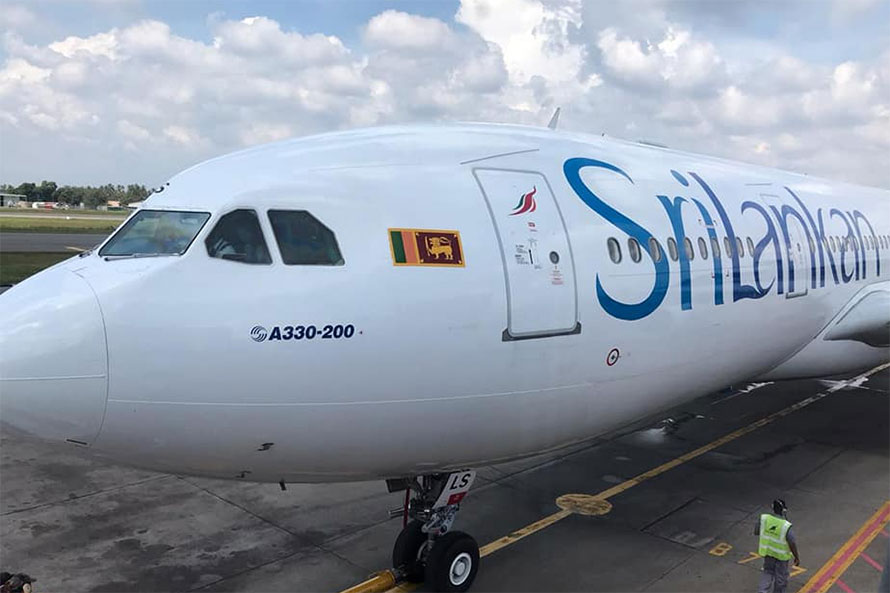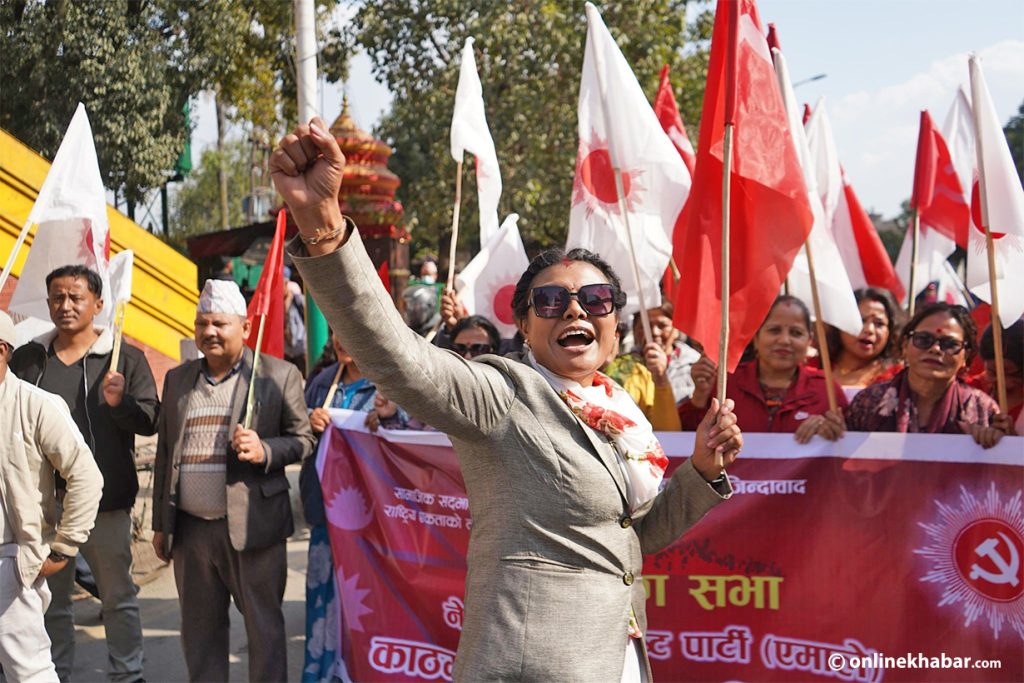Kathmandu, January 8
Metropolitan Traffic Police Division has proposed increasing the fine for each instance of drunk driving to Rs 10,000 (at least) from Rs 1,000.
MTPD Chief, DIG Jaya Bahadur Chand, told Onlinekhabar: The paltry fine of Rs 1,000 will not deter drivers from driving under the influence of alcohol. He questioned: Who will dare drive drunk if we increase the fine to Rs 10,000-Rs 15,000 for every instance of drunk driving?
The Department of Transport Management proposes rules governing legal action against traffic rule violators, Chand said, adding that traffic police also give inputs to the department.
Accidents on rise
After the earthquakes and the Indian blockade, the number of vehicles on the road has decreased, but accidents have increased. Last year, on an average day, three people used to die in accidents resulting from drunk driving. The number has increased to four this year.
Before the quakes and the blockade, traffic police used to nab 200 people daily in the Kathmandu Valley for drunk driving. After the quakes and the blockade, as records at the division suggest, the number has gone down drastically, with traffic police arresting around 100 people daily for drunk driving.
Revenue goes down
Last year, fine against 31,000 drunk drivers had brought in revenue amounting to more than Rs 30 million. This year, police managed to collect around Rs 22 lakh fine from 10,000 drunk drivers, according to division chief Chand.
Relief for traffic police
The Nepali new year 2072 brought relief for traffic police personnel. As quakes struck the country early into the new year, most of the security personnel mobilised for search and rescue operations, while traffic police personnel became relatively free.
After the quakes, the number of vehicles hitting the road decreased. Traffic police did not subject these few vehicles to security checking and did not take action against rule violators. They, instead, had to arrange vehicles for people wanting to leave the Capital for their hometowns. People started travelling even by sitting on buses’ tops.
Later on, traffic police had started taking action against traffic rule violators, with normalcy returning. But the situation again became tense after promulgation of the constitution through a popularly-elected Constituent Assembly, with India imposing a blockade and Madheshi parties staging protests.
There was no traffic rule enforcement as vehicular traffic thinned, forcing people to board already crowded buses. Overcrowded means of public transport and three adults riding on every motorcycle meant for two adults became a familiar sight.
Traffic police seem to have enough of these flagrant rule violations, it appears. DIG Chand says they will no longer allow three adults on a bike, will not allow operators to cram passengers on means of public transport. DIG Chand says they will specifically target microbuses and motorcycles. “Vehicular movement has increased of late. First, we will try to convince operators and drivers not to violate traffic rules. We will take action if they do not oblige,” says Chand.
























